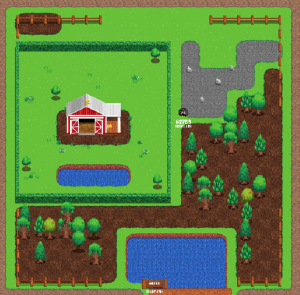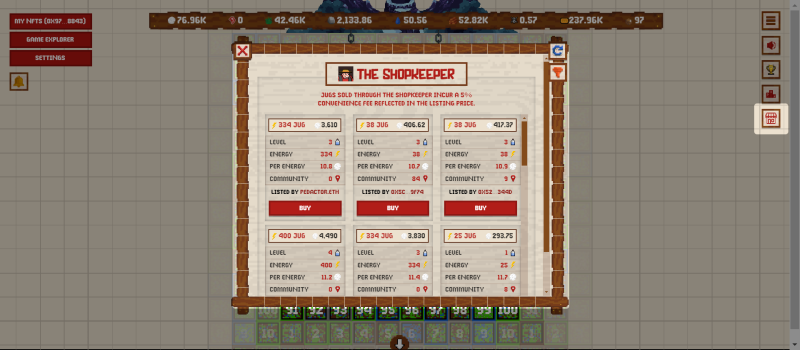Structures

Overview
Structures are central to the Wolf Game economy, a vital part of our ecosystem. There are only 2,577 structure plots, here's a brief overview of their utility:
| Type | Community | Utility | Building Cost
(lvl 1-3) |
Building Cost
(lvl 4+) |
|---|---|---|---|---|
| Barn 🐑 | 1-100 (valley) | Sheep can breed in Barns | Wood, Stone, Wool | + Pelts |
| Bathhouse/Jughouse 🐑 | 1-100 (valley) | Sheep can recharge in baths/jugs | Water, Stone, Wool | + Pelts |
| Den 🐺 | 0 (peak) | Wolves can breed in Dens | Wood, Stone, Wool | + Pelts |
| Bathhouse/Jughouse 🐺 | 0 (peak) | Wolves can recharge in baths/jugs | Water, Stone, Wool | + Pelts |
For a full list of building costs, energy amounts, and breeding times, read the WG Seasons Whitepaper.
Vital Information + Additional Utility
- Structures can be demolished and rebuilt, however resources are not "reimbursed" when demolishing
- Bathhouses can be converted to Jughouses and back for a small wool fee
- Each level increases the breeding time / bathing time
- All structures can be used by the owner or rented out to other players
- Higher level Barns (lvl 4+) provide unique utility such as the chance to breed wolves
- Higher level Dens (lvl 4+) provide unique utility such as the chance to breed twins
- All higher level structures (lvl 4+) qualify for Wool Drip in Seasons
Bathhouses / Jughouses
Recharging energy is complex, here's an overview of how each works, the benefits/drawbacks, etc.
| Bathhouse | Jughouse | |
|---|---|---|
| How it Works | Recharges the animal over a fixed period of days. (ex: a level 2 bathhouse recharges the sheep in 30 days, no matter the current energy level in the sheep) | Jugs are incremental energy. Your Jughouse will produce a Jug exactly 24 hours after the previous jug was consumed. (ex: a level 2 jug is gives 34 energy to the sheep that consumed it) |
| Benefits |
|
|
| Drawbacks |
|
|
| Usecase |
|
|
Jughouse Pricing
Pricing your jughouse correctly is an important part of optimizing your gameplay. I typically price my jugs in a range where if I forget to use them, they sell within a few hours. You can reference Jug floor pricing with The Shopkeeper and use it as a pricing anchor. Jugs listed 20% below the floor (price per energy) typically sell within a few minutes, whereas Jugs listed 10-20% above the floor may take hours or even a few days to sell.
Remember - price your jugs using the PRICE PER ENERGY metric, not the total cost of the jug itself. If your jughouse is going unused, you're leaving wool on the table.
Jughouse Taxes
Each Community has a tax rate set by land owners. When you sell a jug on the market, you pay a wool tax on that jug at whatever the current community tax rate is where that Jughouse is located. For example: if your Jughouse is in a community with a tax of 25% and you sell a jug for 400 wool, then 100 wool would go to the land owners within that community. There is also a small listing fee which goes to community rewards.
For more information on Jugs, read the WG Seasons Whitepaper.


